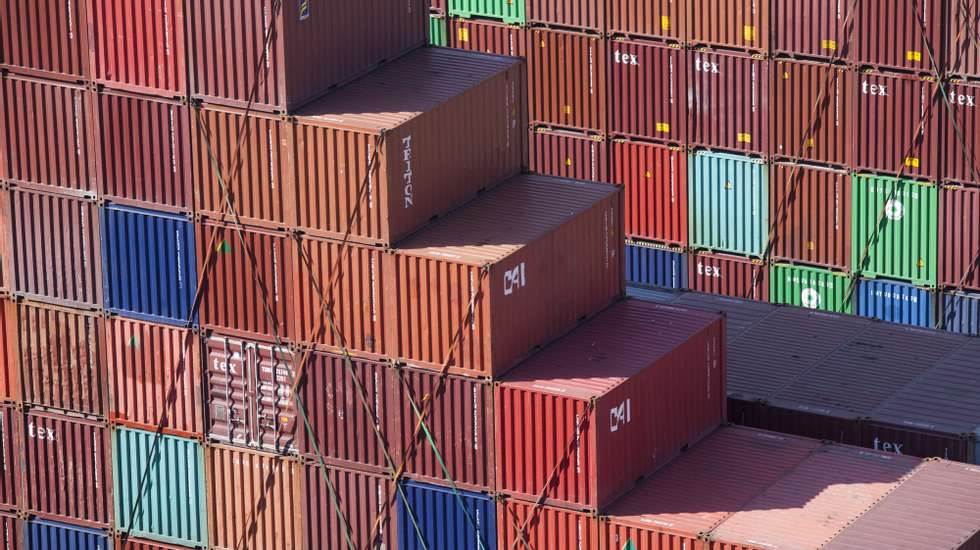Startups do not want a fragmentation of relations with China. The relocation of Western investments to Vietnam is not yet considered a viable alternative for producers.
The end of made in China It would imply “high costs” for European consumers, businessmen warned the Lusa agency, highlighting the country’s “unique” advantages in terms of infrastructure, technology and capacity to produce in volume.
“There is already some relocation of production, but it is partial. If it is total, or 80%, consumers will suffer immensely”admitted Tiago Mateus, head of procurement in China at Joinco, supplier to the Jerónimo Martins retail group.
Tiago Mateus is one of the tens of thousands of foreign importers who flocked to the Canton Fairwhere twice a year Chinese non-food manufacturers display millions of products, from bicycles to kitchen utensils, in the capital of Guangdong, the prosperous southern Chinese province known as the “factory of the world.”
The first edition dates back to 1957, but it was not until recent decades that the Canton Fair became a one of the largest trade events in the worldas China has assumed a central role in global distribution chains.
However, the disruptions caused by Covid-19 and the Russian invasion of Ukraine have sparked debate in the United States and Europe about the need to diversify trade relationships.
“Several countries realized that there is a strong dependency and that, if something happens in China, everyone suffers,” described Tiago Mateus. “But the objective of a private company is profit,” said the Portuguese, highlighting the competitive advantages that place the country “kilometres” from the competition.
Steve Hoffman, CEO of Founders Space, a leading technology incubator and accelerator new companies in the world, based in San Francisco, California, agreed: “In economic terms A fragmentation of trade ties with China makes no sense“.
In an interview with Lusa, Hoffman admitted that the North American executive “is under pressure from his companies –Microsoft, Apple or Intel–, which They do not want to reduce their exposure to China“. What is at stake are conditions that are “very difficult to replicate” in other parts of the world, he said.
China has the world’s most extensive high-speed rail network, seven of the 10 largest ports on the planet, abundant skilled labor, vertical control over supply chains, from easy access to raw materials to component manufacturing and final assembly, and the ability to produce on a large scale.
It also has “very attractive” payment conditions for foreign clients and “effective” arbitration centers in case of litigation are other notable advantages.
“It would take several decades to replicate this model in other places,” Mateus admitted.
With around 100 million inhabitants and a coastal location, the Vietnam positioned itself as a favorite to absorb labor-intensive industryincluding clothing, furniture or electronic products.
Denis Almeida, a Brazilian footwear importer who left Guangzhou in 2019 to settle in Ho Chi Minh City, southern Vietnam, explained to Lusa, however, that The Southeast Asian country’s scale and labor resources are “far below” those of China..
What is at stake are less mature supply chains and the sudden increase in demand for labor, he explained.
“The labor force in Vietnam is, although numerous, still limited, and a company that can offer a higher salary absorbs workers,” he stressed.
China also has a consumer market made up of 1.4 billion people: the country is, therefore, both the largest producer and the main market for iPhones for the North American Apple, for example. Several other international brands face a similar dependency.
In the atrium of the Hilton Beijing Capital Airport, a large marble-clad space with columns and ornate Chinese-style wood panels, Steve Hoffman, who began visiting China in 2015, also warned of the political risks of a divorce with China.
“When interdependence is total, no one wants to disturb the waters,” he described. “Geopolitical tensions will always exist,” he noted. “But if your economy depends on others, there will always be a lot of pressure not to exacerbate these tensions.”
Source: Observadora
